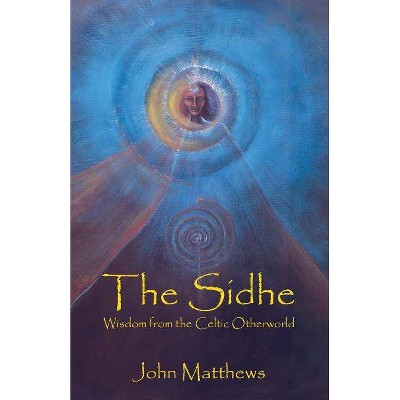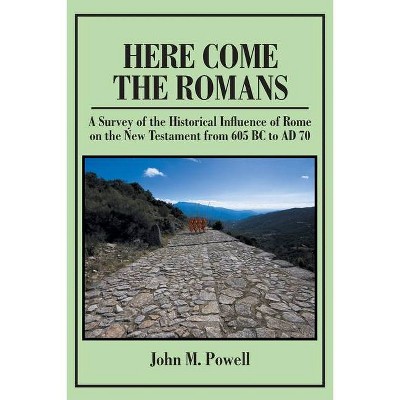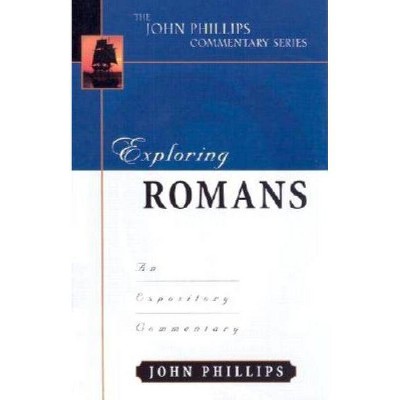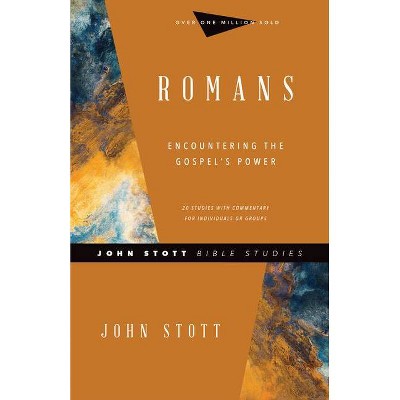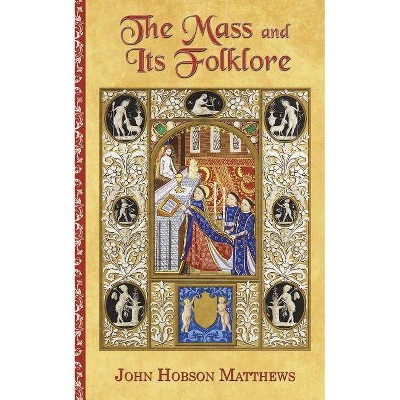Empire of the Romans - by John Matthews (Paperback)
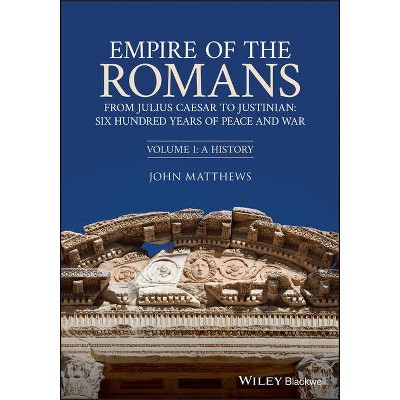
Similar Products
Products of same category from the store
AllProduct info
<p/><br></br><p><b> About the Book </b></p></br></br>"Flamininus' proclamation, made on behalf of himself and the Roman senate, is a classic example of the uses of history in the service of politics. In declaring the end of Macedonian tyranny, it echoed the great debates that we know from fourth-century Athens, as Demosthenes warned of the dangers to freedom presented by the rise of the first great Macedonian king, Philip I. Those events were not so very far distant (150 years is not much in the longue durâee of history), but in the meantime the reign of Philip's son Alexander had changed beyond recognition the shape of east Mediterranean politics. Whether or not they realized or wanted it, the Romans were themselves the heirs of Macedon"--<p/><br></br><p><b> Book Synopsis </b></p></br></br><p><b>A wide-ranging survey of the history of the Roman Empire--from its establishment to decline and beyond</b></p> <p><i>Empire of the Romans, from Julius Caesar to Justinian</i> provides a sweeping historical survey of the Roman empire. Uncommonly expansive in its chronological scope, this unique two-volume text explores the time period encompassing Julius Caesar's death in 44 BCE to the end of Justinian's reign six centuries later. Internationally-recognized author and scholar of Roman history John Matthews balances broad historical narrative with discussions of important occurrences in their thematic contexts. This integrative approach helps readers learn the timeline of events, understand their significance, and consider their historical sources.</p> <p>Defining the time period in a clear, yet not overly restrictive manner, the text reflects contemporary trends in the study of social, cultural, and literary themes. Chapters examine key points in the development of the Roman Empire, including the establishment of empire under Augustus, <i>Pax Romana</i> and the Antonine Age, the reforms of Diocletian and Constantine, and the fall of the Western Roman Empire. Discussions of the Justinianic Age, the emergence of Byzantium, and the post-Roman West help readers understand the later Roman world and its impact on the subsequent history of Europe. Written to be used as standalone resource or in conjunction with its companion <i>Volume II: Selective Anthology, </i> this innovative textbook: </p> <ul> <li>Combines accessible narrative exposition with thorough examination of historical source material</li> <li>Provides well-rounded coverage of Roman economy, society, law, and literary and philosophical culture</li> <li>Offers content taken from the author's respected Roman Empire survey courses at Yale and Oxford University</li> <li>Includes illustrations, maps and plans, and chapter-by-chapter bibliographical essays</li> </ul> <p><i>Empire of the Romans, from Julius Caesar to Justinian </i>is a valuable text for survey courses in Roman history as well as general readers interested in the 600 year time frame of the empire.</p><p/><br></br><p><b> About the Author </b></p></br></br><p><b>JOHN MATTHEWS</b> is Professor Emeritus of Classics and History, Yale University, USA. He received his PhD from Oxford University in 1969 and taught Greek and Roman history at Oxford for many years before moving to Yale in 1996. He was elected Fellow of the British Academy in 1990. He is author of many books including <i>Western Aristocracies and Imperial Court, A.D. 364-425, The Roman Empire of Ammianus, Laying Down the Law: A Study of the Theodosian Code, </i> and <i>Roman Perspectives: Studies in the social, political and cultural history of the First to Fifth Centuries</i>. He is also co-author of the acclaimed <i>Atlas of the Roman World.</i></p>
Price History
Cheapest price in the interval: 55.99 on October 27, 2021
Most expensive price in the interval: 55.99 on November 8, 2021
Price Archive shows prices from various stores, lets you see history and find the cheapest. There is no actual sale on the website. For all support, inquiry and suggestion messagescommunication@pricearchive.us
